Search Results: Surveys, Registries, & Interviews (30 results)
New Search
Surveys, Registries, Interviews
Online survey about pancreatic cancer screening for people with an inherited mutation in genes that are linked to an increased risk of pancreatic cancer
ADHERE: Survey about Pancreatic Cancer Screening Options for People with Inherited Risk
The purpose of this study is to understand knowledge and opinions about pancreatic cancer screening, access to and decision-making around screening, and how a blood-based test might influence screening among individuals with inherited (germline) mutations associated with increased pancreatic cancer risk, including APC, ATM, BRCA1, BRCA2, CDKN2A, EPCAM, MLH1, MSH2, MSH6, PALB2, PMS2, STK11, and TP53.

Surveys, Registries, Interviews
A registry for anyone aged 18 and older who lives in the United States
Research Study on the Genetics of Breast Cancer
We are conducting a fully-online research study to learn more about how genes affect your risk of breast cancer. No office visit is required. Participants provide consent online, answer questions online about their health and medical history, and provide DNA via a saliva sample using a pre-paid mailer through the mail. In return for participation, study participants may receive information about their genetic ancestry for free.
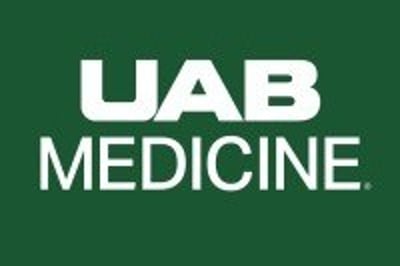
Surveys, Registries, Interviews
Survey for adults with cancer who discussed possible surgery with a surgeon
Cancer Patients: Share Your Experience Talking With Surgeons About Treatment Decisions
Anonymous online survey enrolling adults with cancer who have met with a surgeon about possible cancer surgery
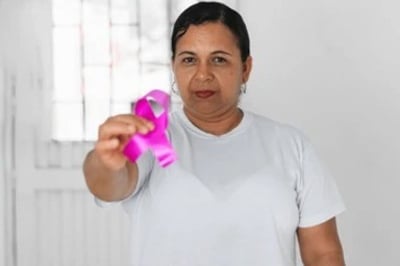
Surveys, Registries, Interviews
A phone survey for Latina breast cancer survivors diagnosed within the past five years in California
Understanding Access to Genetic Services for Latina Women with Breast Cancer
Researchers are surveying Latina breast cancer survivors and patients who were diagnosed with breast cancer within the past five years, lived in California at the time of diagnosis, and are between the ages of 20 and 79 years old.
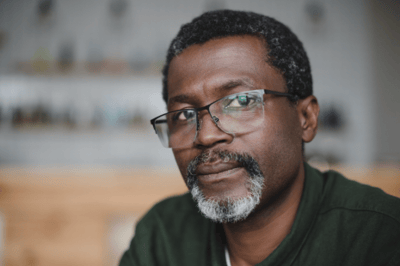
Surveys, Registries, Interviews
Study for African American men with prostate cancer or with a strong family history of cancer
PREVAIL Study: A Genetic Education and Genetic Testing Study for African American Men with Prostate Cancer or with a Strong Family History of Cancer
PREVAIL is a patient-choice study where African American men with prostate cancer or with a strong family history of cancer can choose to either view a pretest genetic education video before having genetic testing or meet with a genetic counselor before genetic testing.
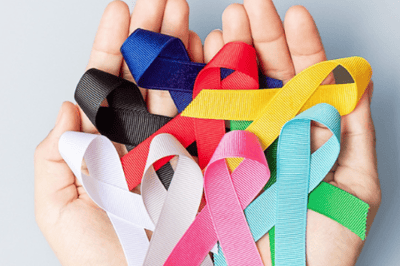
Surveys, Registries, Interviews
Survey for people diagnosed with lung, liver, pancreatic or thyroid cancer
Understanding the Cancer Journey: A Survey of Patient Experiences and Emotional Impact
Survey for people diagnosed with lung, liver, pancreatic or thyroid cancer
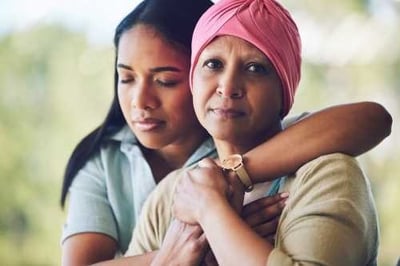
Surveys, Registries, Interviews
Survey and interview for LGBTQIA+ caregivers supporting people with cancer
Understanding the Needs of LGBTQIA+ Caregivers Supporting People with Cancer
This study team wants to understand the experiences of LGBTQIA+ caregivers supporting people with cancer, and what interventions or services could fill their needs and support their health.
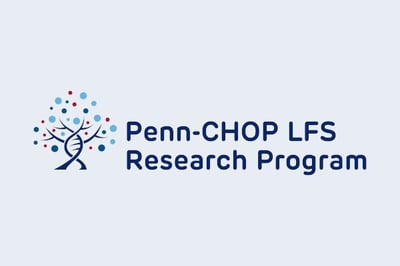
Surveys, Registries, Interviews
This study will enroll Li-Fraumeni Syndrome patients, family members, and household members. Patients and family/household members may be enrolled with informed consent
Clinical and Molecular Studies of Li-Fraumeni Syndrome and TP53-Associated Disorders
The Li-Fraumeni Syndrome Biobank (LFSBB) study is a biobank that collects specimens such as blood and other biomedical samples for individuals who have Li-Fraumeni Syndrome (LFS), unaffected relatives, and household members.
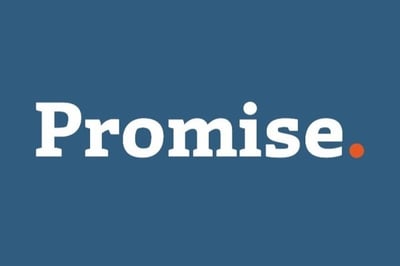
Surveys, Registries, Interviews
A screening registry for people diagnosed with prostate cancer
PROMISE Registry: A Prostate Cancer Registry of Outcomes and Germline Mutations for Improved Survival and Treatment Effectiveness
PROMISE is a nationwide registry of prostate cancer patients with inherited mutations; screening approximately 5,000 participants with a prostate cancer diagnosis. The PROMISE team is studying how these mutations affect patient outcomes and hope to help patients learn more about their disease, the treatments that they may benefit most from, and any research studies that they may be eligible for.
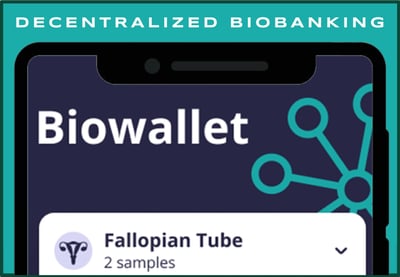
Surveys, Registries, Interviews
Survey to share your views on a new method to track research specimens
What Happens to Tissue or Blood Samples you Donate as Part of Research?
Survey to share your views on a new method to track research specimens, like tissue or blood, you or your loved ones may have donated for science
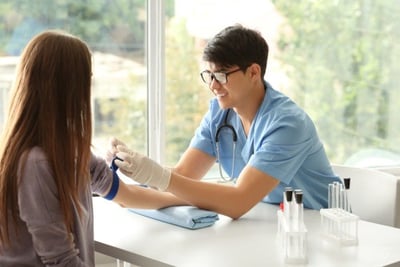
Surveys, Registries, Interviews
Study collecting blood samples and imaging records of people at high risk of developing pancreatic cancer
Registry for People at Increased Risk for Pancreatic Cancer
This study will collect blood samples and MRI images from people at an increased risk of developing pancreatic cancer in order to improve early-stage detection methods in the future.
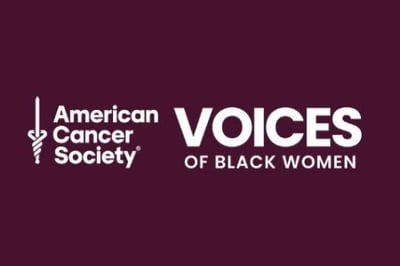
Surveys, Registries, Interviews
Survey for Black women who have never been diagnosed with cancer
The American Cancer Society’s “VOICES of Black Women” Observational Study
VOICES of Black Women is a research survey to better understand cancer and other health conditions among Black women. VOICES is enrolling Black women ages 25-55 in the United States who have never been diagnosed with cancer.

Surveys, Registries, Interviews
Online survey on stomach cancer risk for people with an inherited mutation in genes that are linked to an increased risk of certain cancers
Understanding Risk Factors for Stomach Cancer in People with Inherited Mutations
The purpose of this study is to understand gastric (stomach) cancer risk among people with an inherited (germline) mutation in genes that are linked to an increased risk of certain cancers, including APC, ATM, BRCA1, BRCA2, CDH1, CHEK2, PALB2, Lynch syndrome (MLH1, MSH2, MSH6, PMS2, EPCAM), MUTYH, STK11, and other genes linked to increased cancer risk.
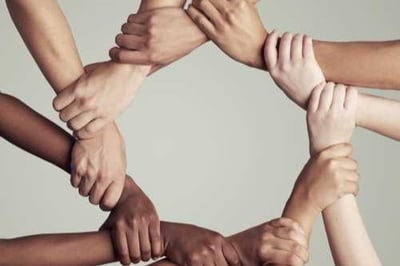
Surveys, Registries, Interviews
Survey for people diagnosed with ovarian cancer
Understanding the Emotional and Social Experiences of Individuals Diagnosed with Ovarian Cancer
A survey for people diagnosed with ovarian cancer to share your experiences, social support, and self-compassion following your diagnosis.
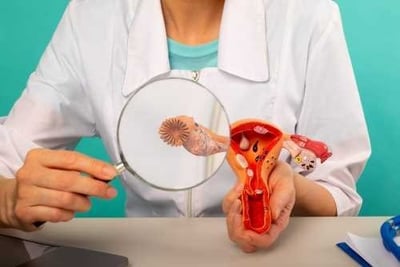
Surveys, Registries, Interviews
Registry for people who completed treatment for ovarian cancer
CHANCES: Studying the Connection Between Chemotherapy Exposure and Secondary Cancers of the Blood in Ovarian and other Cancer Survivors
The primary goal of the study is to identify risk factors for developing secondary blood cancers and to understand how chemotherapy and PARP inhibitor exposure influence clonal changes in the blood that may predispose to later development of a blood cancer.

Surveys, Registries, Interviews
Survey for LGBTQIA+ cancer patients who reside in the United States
Social Support and Coping Strategies Among LGBTQIA+ Cancer Patients
This study explores how different levels of support systems influence coping strategies among LGBTQIA+ cancer patients.

Surveys, Registries, Interviews
Online survey for people diagnosed with breast, colorectal, gastric or prostate cancer within the past twenty years
Understanding the Cancer Journey: A Survey of Patient Experiences and Emotional Impact
Researchers are conducting a survey of cancer patients who were diagnosed with breast, colorectal, gastric or prostate cancer within the past twenty years. The aim is to gather information about their diagnosis, treatment, and personal experiences of battling cancer. The survey will collect data on the type of cancer, diagnosis, treatment plan, medications used, and personal stories throughout the journey to help gain a better understanding of the emotional and psychological impact of cancer on patients.
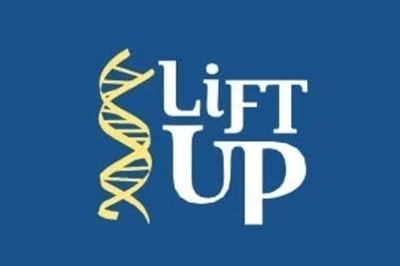
Surveys, Registries, Interviews
Study looking at cancer risk for people with Li-Fraumeni syndrome
The LiFT UP Li-Fraumeni & TP53: Understanding & Progress Study
The LiFT UP Study is a research project for individuals and families from around the world. The goal is to learn more about adults and children who have a change in the TP53 gene in their blood to better predict their specific cancer risks.

Surveys, Registries, Interviews
Registry for people who screen for colorectal endometrial cancer
Registry to Discover New Treatments and Developmental Processes of Colorectal and Endometrial Cancer in Patients with Hereditary Cancer
This research registry will collect and save data, cancer samples and family health history information to discover new ways cancer develops. It will look to find new genes that could be used for treatments and preventing cancer for people with hereditary cancer.
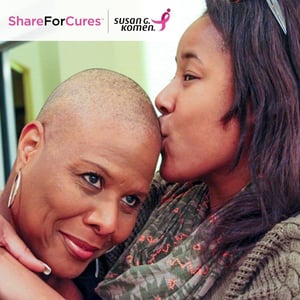
Surveys, Registries, Interviews
Registry for anyone diagnosed with breast cancer
ShareForCures®: Susan G. Komen's People-Powered, Data-Driven Breast Cancer Research Registry
Today, researchers are learning about breast cancer from a small subset of patients, who are not representative of all breast cancer patients. ShareForCures® is an online registry that offers people who have been diagnosed with breast cancer a way to participate in research by connecting information about themselves with their breast cancer diagnosis, medical records, genomics. Participation is open to anyone adult, living in the United States, and who has been diagnosed with breast cancer.
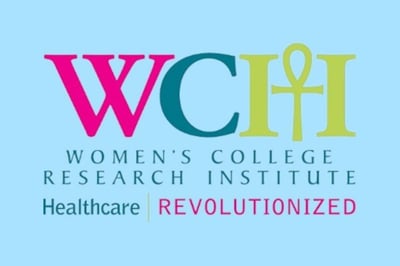
Surveys, Registries, Interviews
Study for people who have a BRCA1, BRCA2, or PALB2 genetic mutation
The Risk Factor Analysis of Hereditary Breast and Ovarian Cancer In Women with BRCA1, BRCA2 or PALB2 Mutations
Those who carry the BRCA1, BRCA2 or PALB2 gene mutations experience a higher lifetime risk of developing breast and ovarian cancer, but we need to know more about the other genetic and non-genetic factors that may also influence risk. This study follows women with these gene mutations over time, striving to build the evidence we need to help them and others make better decisions to protect their health.
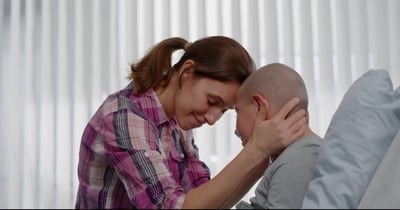
Surveys, Registries, Interviews
Registry for people with Li-Fraumeni syndrome (LFS) or from LFS families
Studying People and Families Affected by Li-Fraumeni Syndrome (TP53 Mutation )
The goal of this study is to identify whether Li-Fraumini syndrome (LFS), which has a high lifetime cancer risk, has any other causes besides the TP53 mutation. The study involves people with Li-Fraumeni syndrome and people from families with Li-Fraumeni syndrome filling out questionnaires with their medical information.

Surveys, Registries, Interviews
Screening study for women at risk for breast cancer due to an inherited mutation or other risk factor
A Surveillance Program for Women at High Risk for Breast Cancer (CAPSBRACA)
Screening study for women at risk for breast cancer due to an inherited mutation or other risk factor. The study will create a registry of women at high risk of breast cancer. A registry collects data about specific populations to understand them better. This study will also look at whether an abbreviated MRI works as well as a full MRI for screening women at high risk of breast cancer.

Surveys, Registries, Interviews
Interviews with African American people who tested positive for a genetic mutation
Kindred Study
We are talking with African American adults about cancer genetic testing, including those that have received a positive cancer genetic testing result and people with a family member who received testing. We are learning about new and improved ways to support African American individuals and families before, during and after they participate in cancer genetic testing.
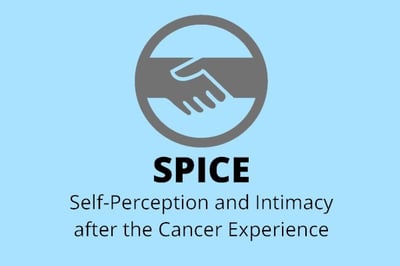
Surveys, Registries, Interviews
Online survey for cancer survivors ages 18-39 years old about sexual health
Self -Perception and Intimacy After the Cancer Experience (SPICE)
SPICE is an online survey that asks questions about your sexuality, sexual health knowledge, interpersonal relationships, and body image. Participants will be asked questions about their body image, impact of cancer, relationships, and how they feel about their sexuality.
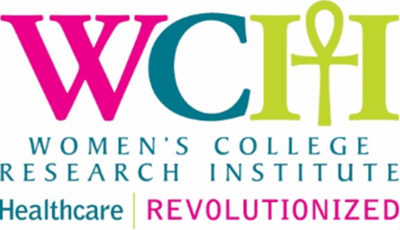
Surveys, Registries, Interviews
A survey for women with a BRCA1 or BRCA2 mutation
A Study on Options for Managing Cancer Risk Among Women with a BRCA1 or BRCA2 Mutation
Women with a BRCA1 or BRCA2 mutation are at higher risk of developing breast and/or ovarian cancer compared to women in the general population. There are various options available to these women to help reduce or manage these risks, including preventive surgery. We are conducting an important new study to examine and understand cancer prevention decisions and outcomes in these women.
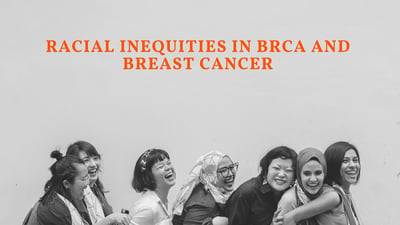
Surveys, Registries, Interviews
People with or without cancer who have had or are considering BRCA testing
BRCA 1 and BRCA 2: Interviews on Genetic Testing and Individual Experiences
This study seeks to interview individuals who come from families with high cancer risk and/or who have tested positive for a BRCA1 or BRCA2 genetic mutation. We are also interested in individuals who may be contemplating BRCA 1/2 genetic testing; those who feel they lack access to genetic testing or who feel they lack information and social and medical support with regard to getting access to genetic testing; those who have been diagnosed with breast cancer who may be at high risk for a range of hereditary cancer. We are especially hoping to reach racially and ethnically diverse males and females whose experiences are often left out of research studies.
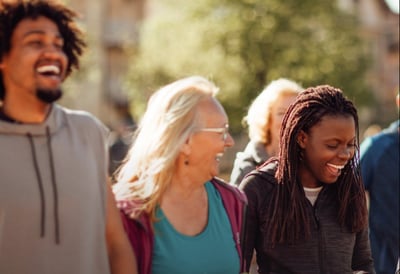
Surveys, Registries, Interviews
Online survey for patients and caregivers focusing on multiple aspects of cancer
Cancer Experience Registry
Online survey for patients and caregivers focusing on multiple aspects of cancer to understand its emotional, physical, practical, and financial impact, so we can identify and address gaps in care and support.
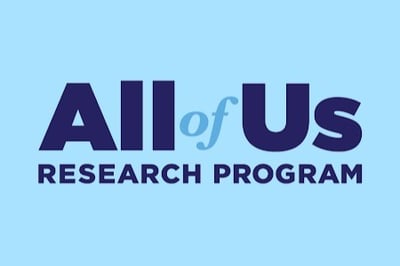
Surveys, Registries, Interviews
Anyone age 18 or over can participate in this research study
All of Us Research Program
The All of Us Research Program is seeking one million people from across the U.S. to help build one of the most diverse health databases in history. We welcome participants from all backgrounds. People who join will share information about their health, habits, and what it’s like where they live. By looking for patterns, researchers may learn more about what affects people’s health.
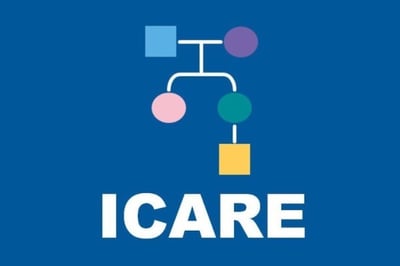
Surveys, Registries, Interviews
Registry for with an inherited mutation or cancer in the family
Inherited Cancer Registry (ICARE): Contribute to Research While Staying Informed
ICARE is a registry of individuals interested in participating in inherited cancer research, through which data and samples are collected to contribute to research. Participants are also provided with ongoing research and clinical updates and informed about other research opportunities for which they might be eligible. Participants are recruited across the United States and beyond. There is no cost to participate, and all materials can be completed online.
